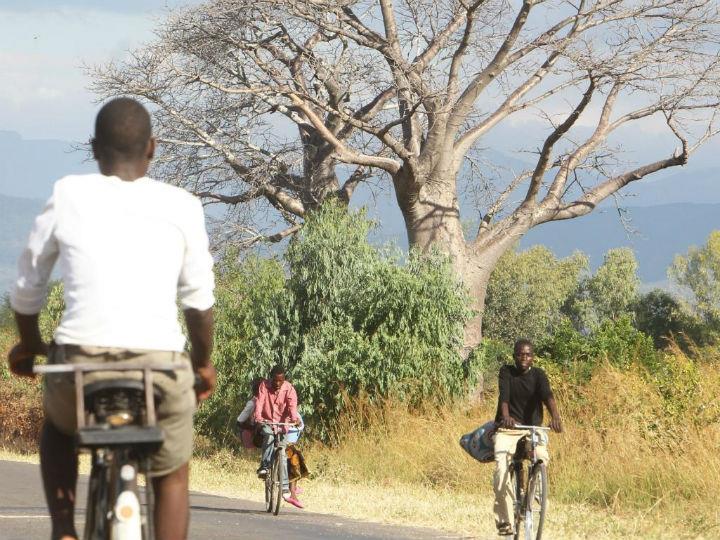by Harry Kretchmer*
-In a new report, the UN warns of “aggressive cyber-policing and increased online surveillance” during COVID-19 lockdowns.
-57 nations have closed their borders, making no exceptions for people seeking asylum; there are also increased reports of domestic abuse across the globe.
-The UN calls for richer countries to help poorer ones overcome the disease to lessen the need for punitive lockdowns.
“A human crisis that is fast becoming a human rights crisis.” That’s how United Nations Secretary General Antonio Guterres, describes the response of many governments to the COVID-19 pandemic.
While acknowledging the need for a rapid response, he says widespread lockdowns have made the least protected in society – such as refugees and the disabled – more vulnerable. He adds that “heavy-handed security responses” risk “undermining the health response”.
In its report, COVID-19 and Human Rights: We are all in this together, the UN sets out six key human rights messages that it says must be central to an effective response to the pandemic.
1. Protecting people’s lives is the priority; protecting livelihoods helps us do it
The priority for all governments, the UN acknowledges, has been to contain the pandemic. However, on the way, the people most severely impacted are those who were already struggling to survive.
These include the estimated 2.2 billion people who are unable to wash their hands regularly because they have limited access to water. And the 1.8 billion who cannot socially distance because they live in overcrowded housing or on the streets.
The widespread closure of schools, disrupting the education of 1 billion children; the rise in domestic abuse amid lockdowns; and the closure of care institutions have all hit the most vulnerable.
The UN cites examples of good practice, including provision of emergency water supplies to slum areas and suspension of housing evictions. But more, it says, is needed as part of a wider human rights-focused risk prevention strategy.
2. The virus does not discriminate; but its impacts do
“Long-standing inequalities and unequal underlying determinants of health are leaving particular individuals and groups disproportionately impacted by the virus,” says the UN.
Evidence from a number of countries appears to support this, including the United Kingdom and the United States, where ethnic minorities have accounted for disproportionately high levels of positive COVID-19 tests and fatalities.
However, the UN thinks responses to the virus go beyond in-built economic or social disadvantages. “Unfortunately, discrimination is rearing its ugly head in this crisis,” says the report, which claims outright racism has been on the rise.
“In some countries, leaders have used labels like ‘foreigner’s disease’ to describe COVID-19.
“Member States have the primary responsibility to counter discrimination and hate speech but all actors, including social media companies, must play their part.”
3. Involve everyone in your response
“The best way to maintain public support for the measures is for governments to be open and transparent and involve people in making the decisions that affect them.”
Around the world, governments are planning for life beyond the lockdown, with lengthy periods of social distancing and reduction of freedoms likely. However, without transparency in their decision-making and the ability to listen to criticism, governments risk losing people’s trust, and, as a consequence, their cooperation, warns the UN.
People’s support can be gained by measures including: good access to the internet, promoting press freedom, and trying to sustain democracy in the lockdown.
The report praises some countries for creating online independent parliamentary committees to scrutinize executive action during the crisis, but warns against what it calls aggressive cyber-policing and increased online surveillance.
4. The threat is the virus, not the people
Every government is fighting COVID-19. Yet “the pandemic could provide a pretext to undermine democratic institutions, quash legitimate dissent or disfavoured people or groups.”
While the report acknowledges that coercive measures may be justified in certain situations, it warns that excessive force risks backfiring in devastating ways.
“Some States may seek to use counter-terrorism legislation and security measures in ways that infringe on human rights. Such abuses could fuel the conditions conducive to the spread of terrorism,” the report warns – citing the example of nations with peace processes at delicate stages.
The UN supports the time limits some member states have imposed on special emergency powers and periods of review – in line with human rights law.
5. No country can beat this alone
“Richer States need to assist low-income States with realizing human rights.”
The pandemic could be an opportunity for countries to remember the importance of multilateralism and international cooperation, the report argues.
Examples of where this could make a difference include in the development and spread of treatments: “When a vaccine becomes available, we must ensure that it is accessible to everyone, everywhere” – and this can be aided by “flexible policies on intellectual property”.
Data can also help – especially if it is shared. The world, the report says, needs “global and national statistical systems to collaborate … to understand the scope of the pandemic.”
This is already happening at the World Economic Forum.
6. When we recover, we must be better than we were before
“Looking ahead, we need to build back better,” says Secretary General, Guterres.
At the top of the list of how to do this is a key UN goal: universal health coverage (UHC).
The report urges world leaders to “use maximum available resources at national and international levels to ensure availability, accessibility and quality of health care as a human right to all without discrimination, including for conditions other than COVID-19.”
Economic measures will also be critical, giving adequate support to those who have lost livelihoods.
And the most vulnerable groups, including refugees and marginalised women and girls, must be at the heart of post-virus planning in order to build “a more inclusive and sustainable world including for future generations”.
*Senior Writer, Formative Content
**first published in: www.weforum.org




 By: N. Peter Kramer
By: N. Peter Kramer
